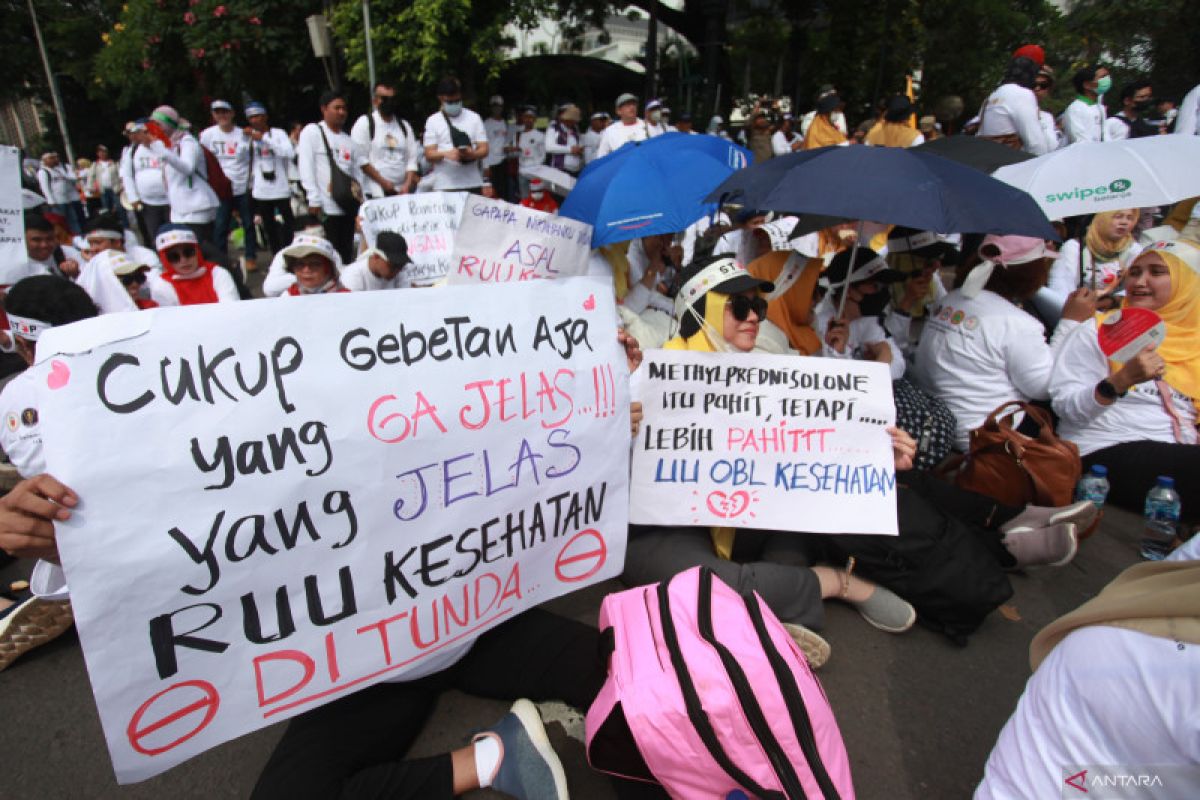He said that Article 42 of the Health Bill will allow abortion to be performed within the first 14 weeks of gestation, calculated from the first day of the last menstruation, while the current Law No. 36 of 2009 on Health restricts abortion to the first six weeks of pregnancy.
"Reproductive health in the Health Bill is not merely about pregnancy age, but also abortion. According to Article 75 of the prevailing Health Law, abortion (is allowed) for mothers with medical indications or victims of rape that cause psychological distress," Sundoyo observed during a meeting with 38 professional organizations supportive of the Omnibus Health Bill here on Wednesday.
He said the Health Bill will also regulate reproductive health and the protection of victims of human trafficking, including their abortion access.
"Victims of human trafficking have been regulated in the Criminal Code, but we also attempt to include them in the Health Bill because (the bill) can regulate it better," the expert staff added.
At the same meeting, a representative of women's health advocacy group IPAS Indonesia Foundation, Igna, lauded the proposed abortion regulation in the bill as part of efforts to transform the health system.
"Our organization highlighted articles about abortions, and we commended the proposal to increase (abortion access) for up to 14 weeks of gestational age for victims of rape and sexual violence that caused pregnancy," Igna said.
The health risks from abortion rise as the gestational age increases, the representative added.
She noted that the use of sharp curettes for abortion remains widespread in Indonesia, though the World Health Organization (WHO) and the International Federation of Gynecology and Obstetrics (IFGO) have not recommended its use for abortion since 2011.
Moreover, the Indonesian Society of Obstetrics and Gynecology (POGI) had in 2018 created a medical service guide for miscarriage, which replaced the use of sharp curettes with methods recommended by the WHO that were accepted by the Health Ministry, she added.
"We should also determine the health officers who are authorized and have the competency to provide the service, and the Health Bill must provide thorough protection to health officers by ensuring all regulations are on the context to serve violence and rape victims," the representative said.
Related news: Bill rejection hinders improvement in protecting medics: Ministry
Related news: Authorities ensure health services unhindered by protest: Minister
Related news: Doctors' protest should not interfere with public service: Ministry
Translator: Andi Firdaus, Nabil Ihsan
Editor: Azis Kurmala
Copyright © ANTARA 2023












